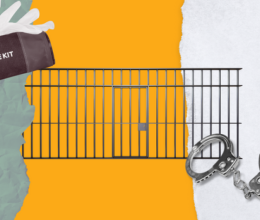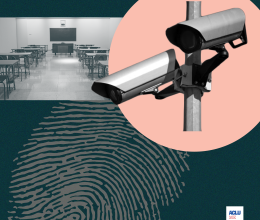As state lawmakers prepare to discuss privacy bills on Monday, Maine has an opportunity to earn an A and protect consumers’ personal data.
AUGUSTA – Nearly half of states that have passed consumer privacy laws get a failing grade for protecting consumers’ data, finds a new scorecard report from the Electronic Privacy Information Center (EPIC) and U.S. PIRG Education Fund. Maine is currently considering a bill that would earn an A for protecting consumers’ personal data and be the strongest in the nation. The bill is scheduled for a committee work session on Monday, February 5.
Tech, financial, retail, travel, streaming, and other companies' harvesting of personal information including demographics and browsing and search history has attracted more attention in recent years. Over 80% of Americans are concerned how companies collect and use their data.
The more data companies collect, and the more other companies they share it with, the more likely it is that your information will be exposed in a breach or a hack and end up in the hands of identity thieves, scammers, or on robocall lists.
“Privacy is not about secrecy. It’s about control,” said ACLU of Maine Policy Director Meagan Sway. “Without nationwide protections, Maine must do more to protect its people. Sensible guardrails will prevent abusive practices that allow governments, individuals, and companies to purchase information that could be used to track us at protests, places of worship, family planning clinics, and more.”
Since 2018, 44 states have considered consumer privacy bills that purportedly aim to protect consumers’ security and privacy. Many of these bills, however, have been heavily influenced by Big Tech, leading to significantly weakened consumer protections across the country.
Maine has a history of leading the country on privacy protections. In 2019, Maine enacted a privacy law that limited internet service provider’s use of customer data, but the state does not yet have a comprehensive privacy law to protect all personal information. The Legislature is currently considering two bills that contain competing measures.
“Right now, there are no guardrails for what companies can do with our personal information. Companies have a free pass to do what they want with our data, including profiting off our most sensitive information. Mainers deserve choices about how our personal information is collected and used," said Maggie O'Neil, House Representative from Saco. “For years, Big Tech fought any laws to protect our personal information. Because of a building public outcry, now Big Tech is writing weak consumer privacy laws themselves to preserve their current practices under a false veil of protecting consumers. Mainers deserve real protections. We can’t let Big Tech write their own law here in Maine."
Provisions that would help the bills under consideration receive an A rating on the scorecard include:
- Setting data minimization obligations on companies that collect and use personal information. This would remove the burden on consumers to manage complex online privacy settings and instead require entities to limit their data collection and use to better match consumer expectations.
- Strict regulation of all uses of sensitive data, including health data, biometrics, and location data.
- Strong civil rights safeguards online.
- Limits on the harmful profiling of consumers.
- Strong enforcement and regulatory powers to ensure the rules are followed.
“The Maine Data Protection and Privacy Act is a natural extension of Maine’s longtime leadership on privacy,” said Caitriona Fitzgerald, deputy director of EPIC. “Maine has the opportunity to disrupt the national trend of bad privacy bills and meaningfully protect Mainers’ privacy.”








